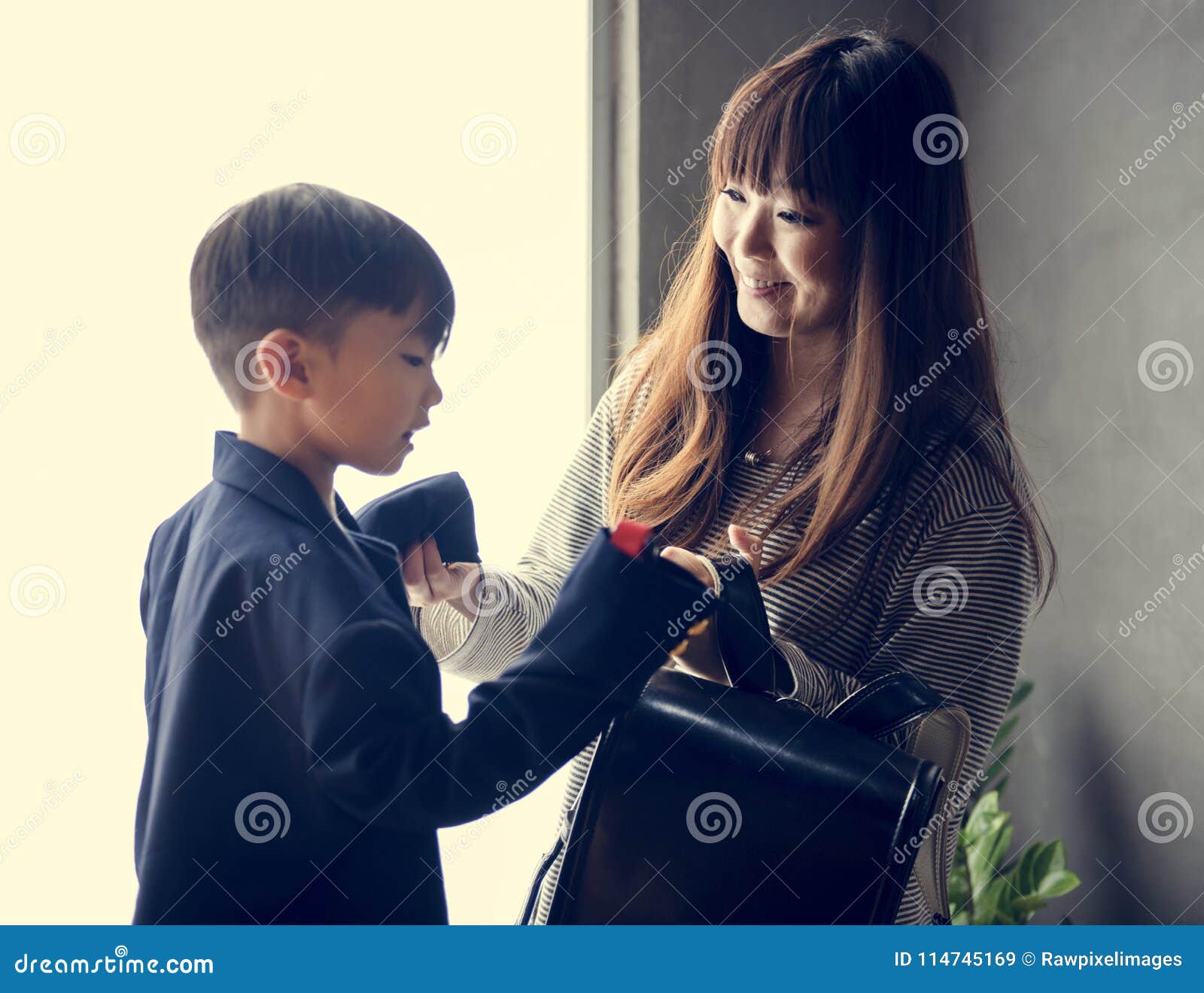Exploring The Bond Between Japanese Moms And Their Sons
Understanding the unique relationship between a Japanese mom and her son offers a fascinating glimpse into the cultural values and traditions of Japan. This bond is deeply rooted in respect, care, and mutual understanding, making it a topic of interest for many. Whether you're a parent, a cultural enthusiast, or simply curious, exploring this relationship can provide valuable insights into Japanese family dynamics. From early childhood to adulthood, the connection between a Japanese mother and her son evolves but remains a cornerstone of Japanese society. This article delves into the nuances of this relationship, shedding light on its importance and impact.
In Japan, the role of a mother is highly respected and often regarded as central to the family structure. Japanese moms are known for their dedication, patience, and ability to nurture their children while instilling discipline and cultural values. When it comes to raising sons, mothers often play a pivotal role in shaping their character, teaching them the importance of responsibility and respect for others. This relationship is not only a reflection of individual family dynamics but also a mirror of broader societal norms.
While the bond between a Japanese mom and her son is celebrated, it is not without its challenges. Modernization and globalization have introduced new dynamics into traditional family structures, leading to shifts in how mothers and sons interact. Despite these changes, the essence of this relationship remains intact, offering lessons that transcend cultural boundaries. In this article, we will explore the various facets of this bond, answer common questions, and provide insights that can resonate with readers worldwide.
Read also:Pippa And Kate A Closer Look At Their Lives Bond And Influence
Table of Contents
- Biography of a Japanese Mom
- What Makes the Japanese Mom and Son Relationship Unique?
- How Does Culture Influence a Japanese Mom with Son?
- What Are the Challenges Faced by Japanese Moms?
- Why Is Respect So Important in Japanese Families?
- How Do Japanese Moms Balance Work and Family?
- What Role Does Education Play in the Japanese Mom and Son Relationship?
- How Can Other Cultures Learn from Japanese Moms?
- Is the Japanese Mom and Son Bond Changing in Modern Times?
- Conclusion
Biography of a Japanese Mom
To better understand the role of a Japanese mom, let’s take a closer look at a typical mother’s journey in Japan. These women often dedicate their lives to raising their children while maintaining a balance between family and societal expectations. Below is a table summarizing the personal details and bio data of a fictional yet representative Japanese mom:
| Name | Aiko Tanaka |
|---|---|
| Age | 42 |
| Children | One son (15 years old) |
| Profession | Homemaker and Part-time Teacher |
| Education | Bachelor’s Degree in Education |
| Hobbies | Calligraphy, Cooking, and Gardening |
| Values | Respect, Discipline, and Family Unity |
What Makes the Japanese Mom and Son Relationship Unique?
The relationship between a Japanese mom and her son is often characterized by a blend of affection, discipline, and respect. Unlike some Western cultures where independence is emphasized from an early age, Japanese mothers tend to foster a sense of interdependence. This means that while sons are encouraged to grow into responsible adults, they are also taught to value their family ties deeply.
One of the key aspects of this relationship is the emphasis on emotional support. Japanese moms often act as confidantes for their sons, providing guidance and understanding during challenging times. This emotional bond is nurtured through daily interactions, shared meals, and traditional family rituals. It is not uncommon for a Japanese mom with son to spend quality time together, whether it’s preparing meals or participating in cultural festivals.
How Does Culture Influence a Japanese Mom with Son?
Japanese culture places a strong emphasis on harmony, respect, and hierarchy, all of which influence the dynamics between a mom and her son. From a young age, sons are taught to show respect to their elders, including their mothers. This cultural norm fosters a sense of gratitude and responsibility in the son, ensuring that he grows up valuing his mother’s sacrifices.
Additionally, traditional Japanese values such as "omoiyari" (consideration for others) play a significant role in shaping the behavior of both mothers and sons. A Japanese mom with son often models these values through her actions, teaching her child the importance of empathy and kindness. This cultural influence creates a bond that is both nurturing and respectful.
What Are the Challenges Faced by Japanese Moms?
While the relationship between a Japanese mom and her son is often idealized, it is not without its challenges. One of the primary difficulties faced by Japanese moms is balancing societal expectations with personal aspirations. Many mothers in Japan feel pressured to prioritize their children’s needs over their own, leading to stress and burnout.
Read also:Garth Brooks And His Cherished Grandchildren A Glimpse Into Family Life
Another challenge is navigating the changing dynamics of modern Japanese society. As more women enter the workforce, the traditional role of the stay-at-home mom is evolving. This shift can create tension in the household, especially if the son is used to having his mother available at all times. Despite these challenges, many Japanese moms find ways to adapt while maintaining a strong bond with their sons.
Why Is Respect So Important in Japanese Families?
Respect is a cornerstone of Japanese family life, and it plays a crucial role in the relationship between a mom and her son. From a young age, children are taught to show respect to their parents and elders through actions such as bowing, using polite language, and performing household chores. This emphasis on respect helps foster a harmonious family environment.
In the context of a Japanese mom with son, respect is not a one-sided expectation. Sons are encouraged to express gratitude for their mother’s efforts, whether it’s through verbal acknowledgment or helping out with household tasks. This mutual respect strengthens the bond between mother and son, creating a relationship built on trust and understanding.
How Do Japanese Moms Balance Work and Family?
Balancing work and family is a common challenge for mothers worldwide, and Japanese moms are no exception. In Japan, many women face societal pressure to prioritize their family over their career, leading to a phenomenon known as "matahara" (maternity harassment). Despite these challenges, some Japanese moms have found ways to excel in both areas.
For example, a Japanese mom with son might take on a part-time job that allows her to be present for her child while contributing to the family’s income. Others may seek support from extended family members or community networks to manage their responsibilities. These strategies highlight the resilience and adaptability of Japanese mothers in the face of societal expectations.
What Role Does Education Play in the Japanese Mom and Son Relationship?
Education is highly valued in Japanese society, and mothers often play a key role in their children’s academic success. A Japanese mom with son typically takes an active interest in her child’s education, ensuring that he completes his homework, attends tutoring sessions, and prepares for important exams.
This involvement in education is not just about academic achievement; it is also about instilling discipline and a strong work ethic. By supporting their sons’ educational journey, Japanese moms help them develop the skills and mindset needed to succeed in life. This shared focus on education further strengthens the bond between mother and son.
How Can Other Cultures Learn from Japanese Moms?
The dedication and values exhibited by Japanese moms offer valuable lessons for parents around the world. One key takeaway is the importance of fostering a sense of interdependence within the family. By prioritizing mutual respect and emotional support, parents can create a nurturing environment where children feel valued and understood.
Another lesson is the emphasis on discipline and responsibility. Japanese moms often teach their sons the importance of hard work and perseverance, qualities that are universally beneficial. By adopting these principles, parents from other cultures can strengthen their own family dynamics and prepare their children for future success.
Is the Japanese Mom and Son Bond Changing in Modern Times?
As Japan becomes increasingly modernized, the traditional dynamics between a Japanese mom and her son are evolving. While respect and interdependence remain core values, younger generations are beginning to embrace more individualistic approaches to family life. This shift is evident in the growing number of sons who pursue careers or lifestyles that differ from their parents’ expectations.
Despite these changes, the bond between a Japanese mom with son continues to be a source of strength and support. By adapting to modern realities while preserving cultural traditions, mothers and sons can maintain a relationship that is both meaningful and enduring.
Conclusion
The relationship between a Japanese mom and her son is a testament to the power of love, respect, and cultural values. Whether navigating the challenges of modern life or celebrating traditional rituals, this bond remains a cornerstone of Japanese family life. By understanding and appreciating the dynamics of this relationship, we can gain valuable insights into the importance of family in shaping individuals and communities.
For those interested in exploring this topic further, consider learning more about Japanese culture and its influence on family dynamics. Whether you’re a parent, a cultural enthusiast, or simply curious, the story of the Japanese mom with son offers lessons that resonate across cultures and generations.
Kate Scott Annoying In Madden 24: A Comprehensive Guide
Cow With Strawberries On It: A Unique And Fascinating Sight
How To Resolve "Account Not Found TikTok" Errors: A Comprehensive Guide

Jap Mom And Son

Japanese Mom (일본 엄마) Movie Picture Gallery HanCinema The